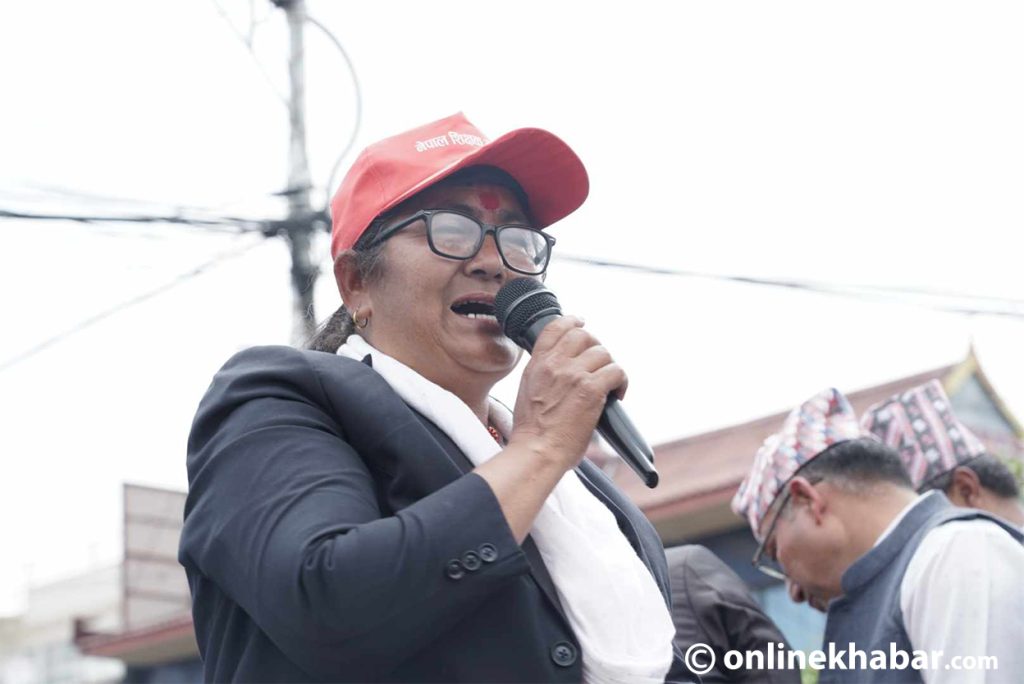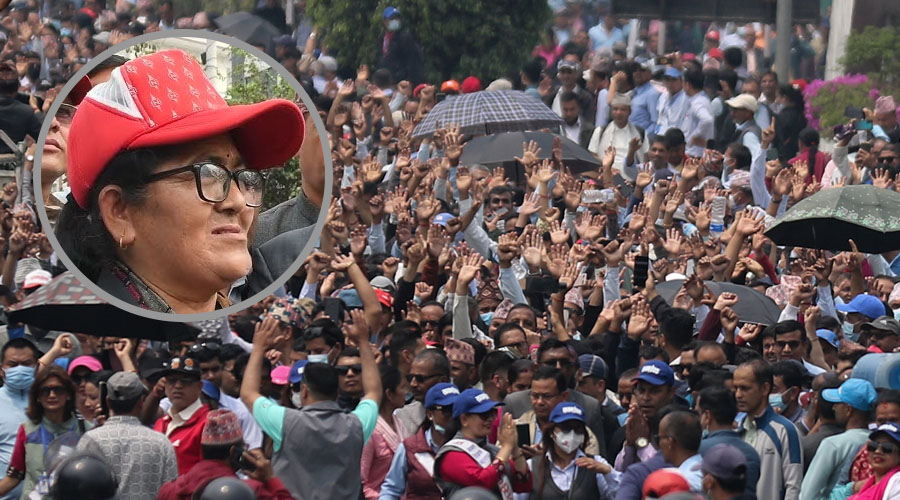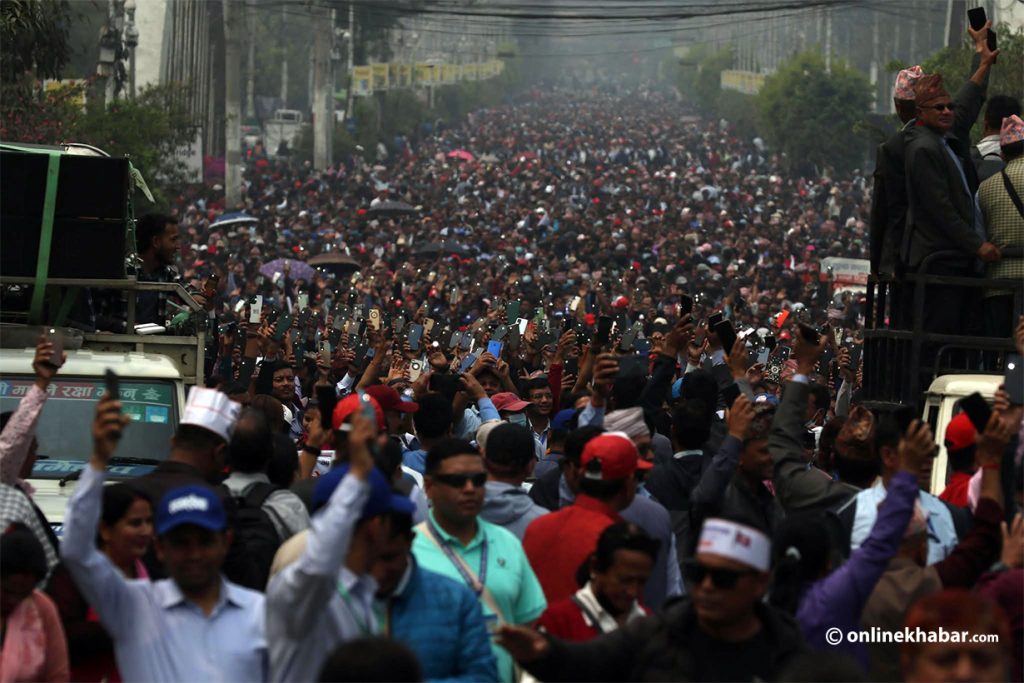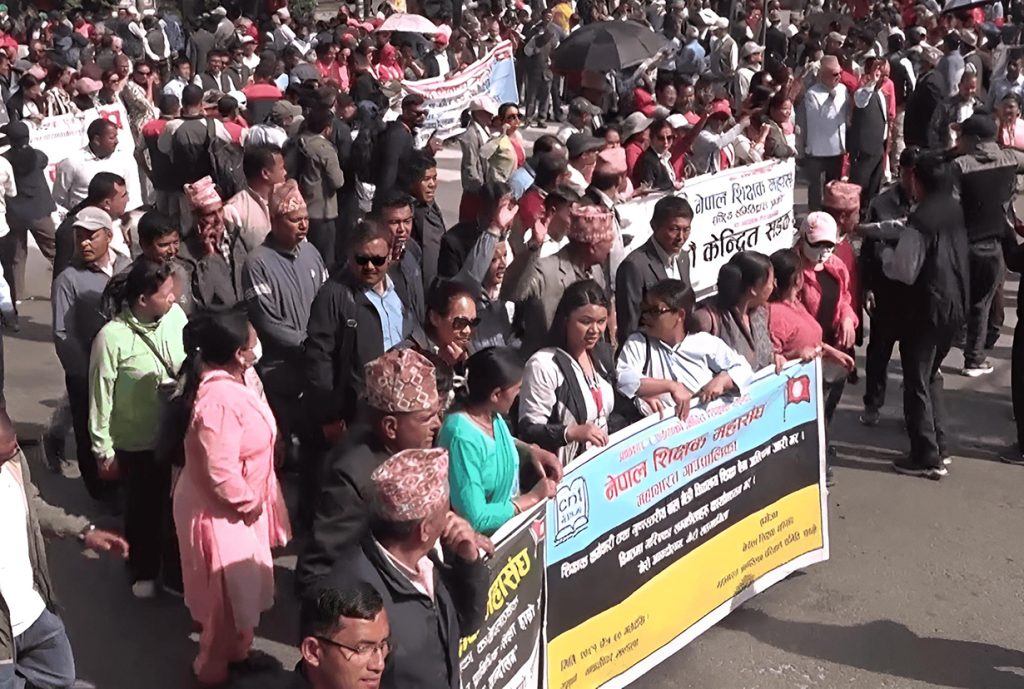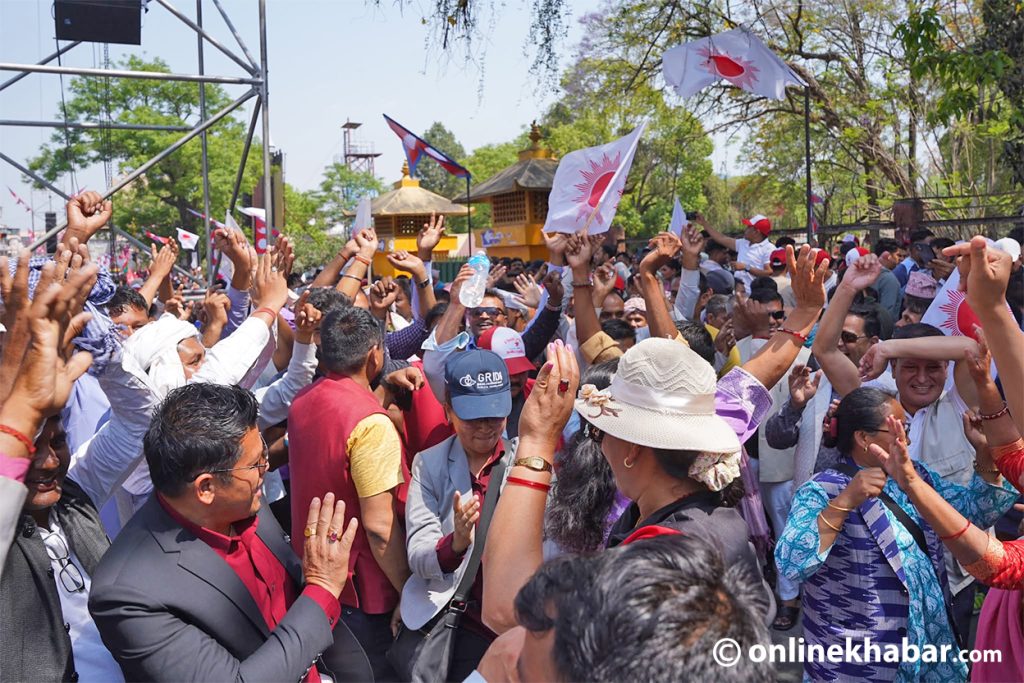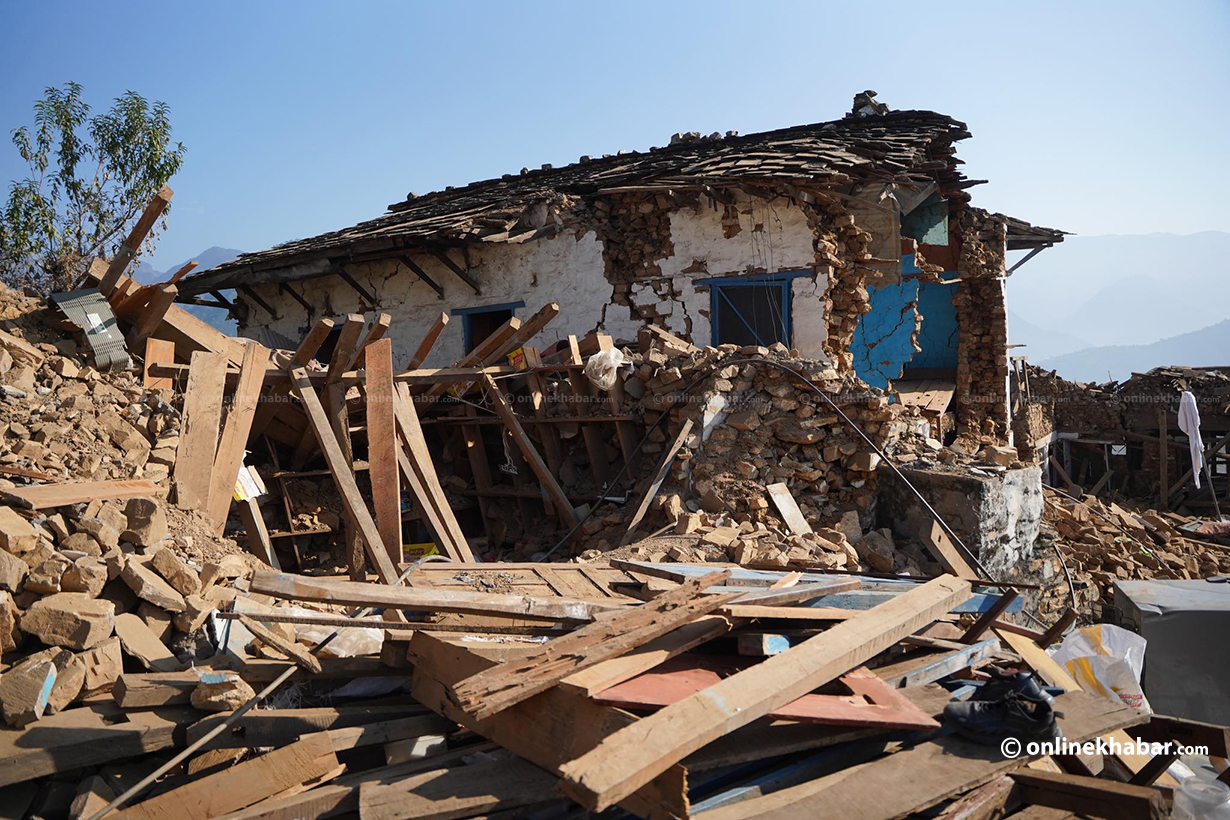
In a meeting of the Education, Health, and Information Technology Committee under the House of Representatives on December 5, a bold policy proposal was made to enhance the quality of education in Nepal. Committee Chair Amar Bahadur Thapa suggested a reformative strategy involving the respectful dismissal of temporary teachers and the re-evaluation of permanent teachers.
The meeting focused on discussions around the School Education Bill, which has garnered significant attention from stakeholders, lawmakers, and educators alike. Chair Thapa emphasised the need for structural changes to address long-standing issues in the education system and improve overall quality.
Extensive amendments and stakeholder discussions

The School Education Bill has been a hot topic in Parliament, with 1,758 amendment proposals registered in 152 groups by lawmakers. The committee has completed discussions with lawmakers, as well as stakeholders, including the Federation of Teachers, Federation of Rural Municipalities, Federation of Municipalities, educators, and various educational organisations.
Chair Thapa stated that clause-by-clause discussions on the bill will commence soon. The discussions aim to reconcile constitutional mandates, address stakeholders’ concerns, and consider the viewpoints of political parties to devise a comprehensive strategy.
Diverging views on governance of education
Lawmakers expressed varying opinions on how to shape Nepal’s education policy. Some advocated for empowering local governments as per constitutional provisions, making them responsible for managing school-level education. Others argued for provincial-level governance, citing the inability of local governments to handle educational responsibilities effectively.
Additionally, concerns were raised over potential partisan bias, as local governments are often led by elected officials from political parties. Some lawmakers emphasized the need for federal government involvement to ensure impartiality in school education management.
Chair Thapa’s reform proposal
Chair Thapa presented a controversial idea to address perceived inefficiencies in the current education system. He proposed a two-pronged approach:
- Respectful Dismissal of Temporary Teachers:
Thapa argued that temporary teachers should be honorably retired with appropriate benefits. He highlighted that some teachers have been serving in temporary capacities for over 25 years, which is neither sustainable nor beneficial for educational outcomes.
“The state must create an environment where temporary teachers can retire respectfully. Without such measures, any decision to let them go could lead to protests,” Thapa said. - Re-evaluation of Permanent Teachers:
Thapa suggested conducting practical exams for permanent teachers to assess their competence. Those who fail should no longer be allowed to teach. “This process should be legally mandated within the School Education Bill. If a teacher fails the exam, they should either retire with a pension or be allowed to serve out their remaining tenure,” he explained.
He further argued that to enact such changes, the Ministry of Education and the federal government must be prepared. He proposed producing new teachers through universities to fill vacancies left by dismissed or retired educators. “Universities have a role in producing skilled teachers in various subjects to meet immediate needs,” Thapa added.
Minister Bhattarai’s perspective
Education, Science, and Technology Minister Bidya Bhattarai also attended the meeting. While she did not comment directly on Chair Thapa’s proposal, she emphasised the importance of implementing existing laws effectively to improve educational quality.
Minister Bhattarai highlighted the Compulsory and Free Education Act of 2019, which mandates coordination among local, provincial, and federal governments to strengthen the education system. “Effective implementation of this act can significantly improve Nepal’s education system,” she said.
Task force to address student-teacher ratios
Minister Bhattarai also announced the formation of a task force led by former Secretary Dipendra Bikram Thapa. The task force will study and recommend solutions to address imbalances in student-teacher ratios, which have been affecting education quality.
She revealed that a similar study was conducted in 2019, but changing circumstances necessitated a fresh review. The task force has been given two months to submit its report, which will also assess the impact of local governments’ education-related initiatives.
“The task force will review actions taken by local governments and provide actionable recommendations for immediate and long-term improvements,” Minister Bhattarai stated.
Challenges in implementation
Minister Bhattarai acknowledged potential challenges in implementing reforms, particularly in aligning the perspectives of different levels of government. However, she expressed confidence that a coordinated approach would lead to a more robust education system.
“Addressing the challenges of regulation and management will become easier with the study’s findings,” she noted, adding that any urgent issues highlighted in the report would be prioritised.
Way forward
As the committee prepares for detailed discussions on the bill, Chair Thapa’s proposal for teacher evaluations and restructuring will likely be a focal point of debate. Stakeholders and lawmakers must find a balance between respecting the rights of teachers and ensuring educational quality.
While the proposal has sparked controversy, it underscores the urgency of reforms in Nepal’s education system. With robust planning, sufficient resources, and effective implementation, these reforms could pave the way for a more competitive, ethical, and globally relevant education system in Nepal.






